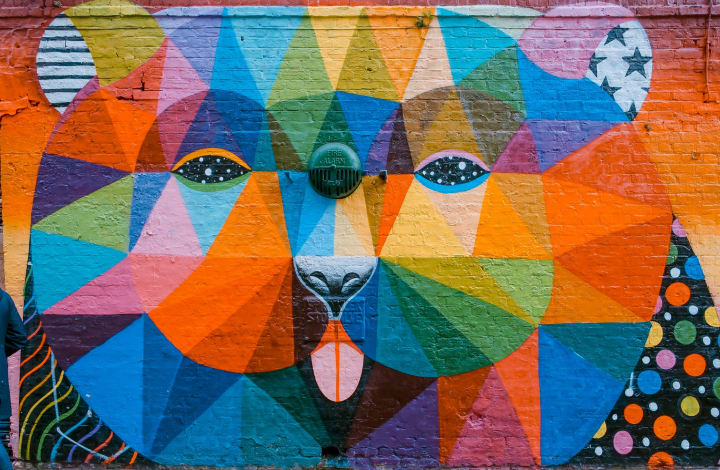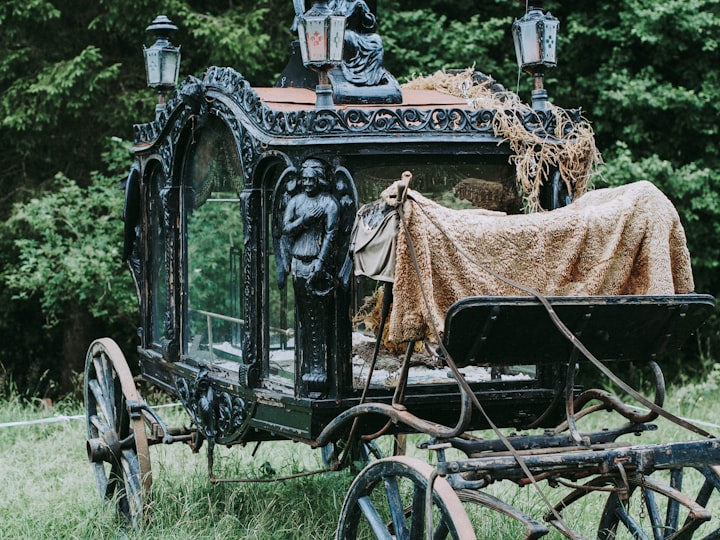Stop Saying These Things to Trans People!
You can educate yourself without completely invalidating my identity.

This article contains use of language, anatomy terms, and questions that may be triggering to the LGBTQIA+ community.
Since coming out as transgender, I've really noticed a difference between the way people treated me as a girl, and the way people treat me as a boy. Especially online, I'm spoken to differently: and a lot of the time, my identity is disregarded completely by people who are insecure about themselves when they acknowledge it. Though I've known for a long time about chasers* in the trans community, I never experienced one firsthand until recently, and it got me wondering. I have a cisgender friend I've known since college, who was never shy about his attraction to me, and who hasn't toned it down at all since I came out. Not too long ago, he said something that really stuck with me, while also completely bringing into question our relationship.
Basically, I've been approached by cishet men who claim that a hole is a hole, reiterating their attraction to me while also using my assigned sex as a confirmation that they're not gay. Men who want to date or fuck me despite proclaiming themselves straight, because I have the parts they like - therefore dehumanizing me to a body part, and insinuating that a man without a dick is not a man at all. I am not responsible for protecting the fragile male ego. If your attraction to me makes you question your own identity, then I've done my job.
The trans community is huge and diverse, like any other community. Despite being a part of it, I'm only one person, which means things that bother me may not be an issue for other people - and vice versa. For example, I recently was recommended a shirt on Etsy that said, I love my trans daughter!, and this sent me into a whirlwind of frustration. Let me explain why. As a trans person, I don't need to be outed every time I'm out in public: and a shirt that exclaims my transness will certainly do this. There's more to being an ally than claiming you're an ally, or wearing an article of clothing that proclaims it. I feel that, in most cases, wearing a shirt that insists you love your trans child is meaningless except to make the wearer feel like a good person. They're worn by cis people for brownie points, as if all you have to do to be supportive is to wear a shirt that says you're supportive.
I've argued with many cisgender people about the meaning of allyship. Even my partner has claimed that saying you're an ally is equivalent to being one, and I'm growing exhausted of explaining why this isn't true. When I'm asked how a person can show allyship, I try and give honest responses and helpful resources, and while it's true that the world is becoming more progressive, a lot of the time these conversations just veer into inappropriate territory. I don't mind educating those who are genuinely looking to be accepting and to learn more. I don't mind sharing my experiences. There's a difference between genuine, open-minded curiosity and invalidation.
How are we supposed to be allies if asking questions is offensive? It's not about the questions, really. I get it. Education is a lifelong thing, and it seems to make sense to go straight to the source. How do you know which questions are appropriate to ask a trans person, and which ones aren't? Like I've said before, I'm only one person. My experiences in the trans community vary greatly between the experiences of other people. I think some of the questions I've been asked by total strangers are a pretty universal trans experience. And of course, it depends a lot on circumstance. My gender specialist, for example, could ask me about my plans for bottom surgery, or the deadname that's still on my medical records, and these questions wouldn't be inappropriate the way they would if a stranger asked them.

Stop asking trans people these questions. The first step of allyship is acknowledging your privilege and becoming educated about those for whom you are an ally. Asking other people for information is a good source of education, but sometimes it's challenging to determine where the line sits, and how not to cross it.
1. What's your real name? In this scenario, real name refers to birth name, which - in many cases of transition - refers to deadname. We're asked for the names on our birth certificates, as if a given name is something you're obligated to keep. The way I see it, a name is a gift: something that can be exchanged or swapped out if you outgrow it. My real name is the one I give myself. Unless you're my doctor, parent, or close childhood friend, it's the only one you get to know.
2. What made you decide to be trans? Here's the thing. Many people think that transness is a side effect of childhood trauma, or internalized homophobia, or something else. And, while I have made many decisions over the course of my transition, the choice to be trans was not one of them. It's like asking someone when they decided to like women, or when they decided to have green eyes. When I was younger, when I was still conflicted by my childhood religious traumas, I'd tell myself that if I was meant to be a boy, God would have made me that way. It was a hard hurdle to overcome, honestly. The truth is that sometimes, biology and brain chemistry don't match up, and there's nothing wrong with that.
3. Have you gotten all the surgeries? Are you fully transitioned? Questions like this imply that there's a right way to transition: that it's a linear process with an end and a beginning. I can't pretend I've never struggled with this concept, because internalized transphobia takes a toll on us all, especially if, like me, you're forced into religion from a young age. It doesn't matter. Everyone's transition journey is different, and everyone's is valid. Some people don't want to take hormones, or get any type of surgery, or change their name. Some people want to do all of the above. The point is that there's no one way to be trans, and there's certainly not a right way to transition. A man who keeps his name and opts out of testosterone replacement is no less a man than one who gets bottom surgery and gives himself hormones.
4. Anything about myself pre-transition. Don't tell me how pretty I was as a girl, or how much you miss my long hair. This has nothing to do with me. I think, what people are really mourning in these situations is the version of you they'd created in their heads. I spent twenty three years of my life trying to cater to other people's versions of me. In the end, the only thing that ever should have mattered was my version of me.
5. Why do you want to wear makeup and dresses if you hate looking like a girl? Maybe this one is just specific to me. Maybe not. Either way, it's something I've asked myself more than once. Part of every gender journey is the realization that our expressions don't have to match our genders, and that the two aren't mutually exclusive. Something I've realized this year is that I want to look feminine in a masculine way, and I don't know if this makes sense to anybody else.
6. What are your preferred pronouns? My pronouns are he/him. They're not preferred, they just are.
7. You look like a real guy/girl! That's because we are. The term passing is a big one in the transgender community: a trans man or woman who people assume is cis. Although a lot of trans people want to pass, I think it's a damaging idea that stems from transphobia and gender norms. The question here is: what makes me pass? It implies that looking a specific way makes you look like a cis person: like there's a proper way to look like a man or to look like a woman. I don't know if my thoughts make sense to anyone else. Cis people come in all shapes, forms, and colours, and so do trans people. I don't want to be cis-passing. I want to reiterate the fact that gender can be whatever you make it.

A few closing points: If you're active in the trans community, you'll know that all of us have different stories, just like everyone else. Even within the community, internalized transphobia makes it rounds, making it extremely difficult to tell, sometimes, which people are genuine in their questions and which are transphobic. There are many ways to be an ally that don't involve intrusive questions, and it comes on a very subjective basis. It's important to listen openly to what trans people have to say, and then use what you've learned to educate others and to stand behind those of us who find it difficult to stand on our own.
-------------
chaser: a term used within trans circles to indicate a person with morally questionable dating habits. a [usually cishet] person who dates trans women, but not cis women, or who fetishizes or dehumanizes their trans partner while simultaneously claiming allyship.
cisgender: a term used to describe a person who identifies with the sex they were assigned at birth.
About the Creator
ghostsandrebels
i'm a a queer writer, poet, cat lover, and author. i'm passionate about psychology, human rights, and creating places where lgbt+ youth and young adults feel safe, represented, and supported.
29 | m.
follow me on threads for more.
Reader insights
Outstanding
Excellent work. Looking forward to reading more!
Top insights
On-point and relevant
Writing reflected the title & theme
Easy to read and follow
Well-structured & engaging content
Heartfelt and relatable
The story invoked strong personal emotions
Compelling and original writing
Creative use of language & vocab
Expert insights and opinions
Arguments were carefully researched and presented
Eye opening
Niche topic & fresh perspectives
Excellent storytelling
Original narrative & well developed characters
Masterful proofreading
Zero grammar & spelling mistakes







Comments (9)
Well deserved Top Story, we have featured this in the Community Adventure in the Vocal Social Society Facebook Group and would love for you to join us there
As a lesbian, I think the word "cis" has to stop.
Very edifying and illuminating. Thank you.
Interesting article. Informative. I learned a lot. Thanks.
Thank you for sharing information that should not be you’re burden to share 🙏❤️
Good for you for standing up for who you are! I never question gender when it comes to a person; I prefer to see people as they are. Nobody makes the rules about who we are but ourselves.
Thank you for sharing your insights and definitions. I really do appreciate the education.
Amazing. Keep up the amazing work. Thank you for being you.
I’m glad you and I are on the same level of thinking. The points you made in the article are the exact same ones I feel. Similar to you, I just want to live a happier life as who I truly am (no labels required). I wish I could break away from the “passing” label, but seeing how there’s always going to be a target on my back, passing as a cis-women = safety. Thanks for writing this.